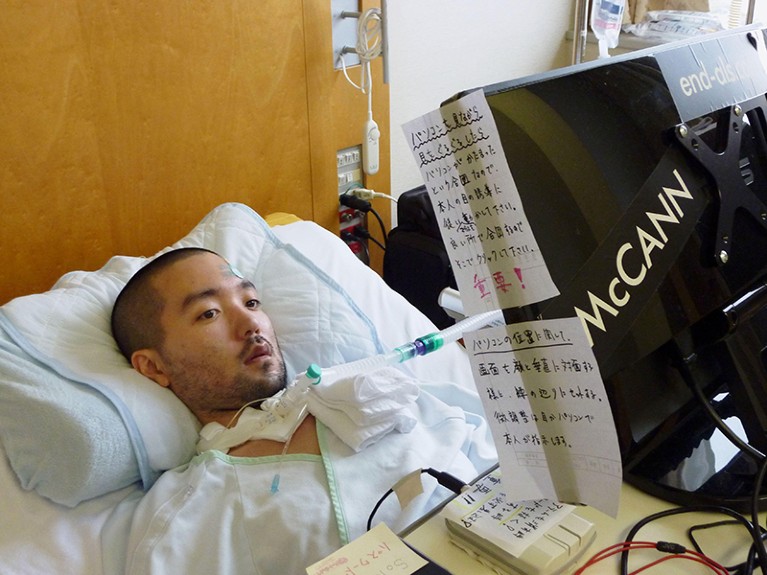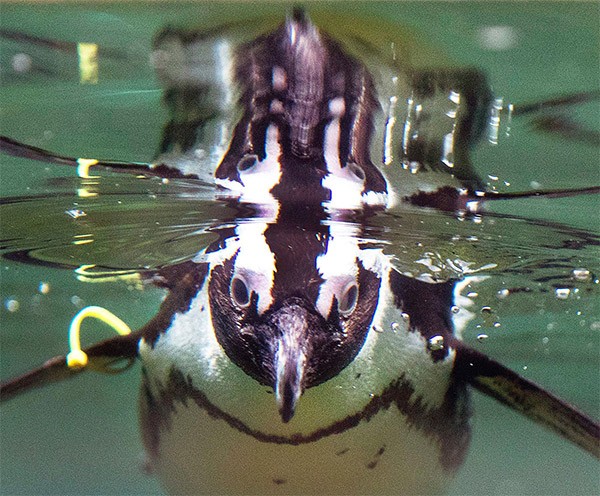Hello Nature readers, would you like to get this Briefing in your inbox free every day? Sign up here.

People with paralysing conditions such as motor-neuron disease often rely on technology to help them speak.Credit: BJ Warnick/Alamy
Brain signals translated into speech
In an effort to provide a voice for people who can’t speak, neuroscientists have designed a device that can transform brain signals into speech using artificial intelligence. The technology can synthesize whole sentences that are mostly intelligible — although it isn’t yet accurate enough to use outside the lab. Researchers trained the system with five volunteers who read hundreds of sentences aloud while their brain activity was recorded by electrodes.
Hear two sentences compared to their dopplegangers generated from brain activity (MP3 audio file).
Go deeper: Read what the experts think in the News & Views article
Killer pig virus spurs vaccine research
A highly contagious disease that kills pigs has swept through China, the world’s largest pig producer. African swine fever was detected in China only last August, but there have since been at least 120 outbreaks — and the virus is already moving through neighbouring countries. Under intense political pressure, scientists in China are ramping up efforts to study the virus and produce a vaccine.
FEATURES & OPINION
Science in transition
For transgender people choosing medical gender transition, the long-term health effects of hormone treatment have long been unknown. Now, a wave of studies is focusing on its impacts on everything from mental health and well-being to the potential of increased cancer risks. The largest ever such study, involving 2,600 transgender participants in Europe, has published its first results — and the research could last several lifetimes.
Rein in the four horsemen of irreproducibility
Experimental psychologist Dorothy Bishop names the four horsemen of the reproducibility apocalypse: publication bias, low statistical power, P-value hacking and HARKing (hypothesizing after results are known). “My generation and the one before us have done little to rein these in,” argues Bishop — but change is coming.

A penguin dives into its pool in the zoo in Kronberg, Germany.Michael Probst/AP/Shutterstock

